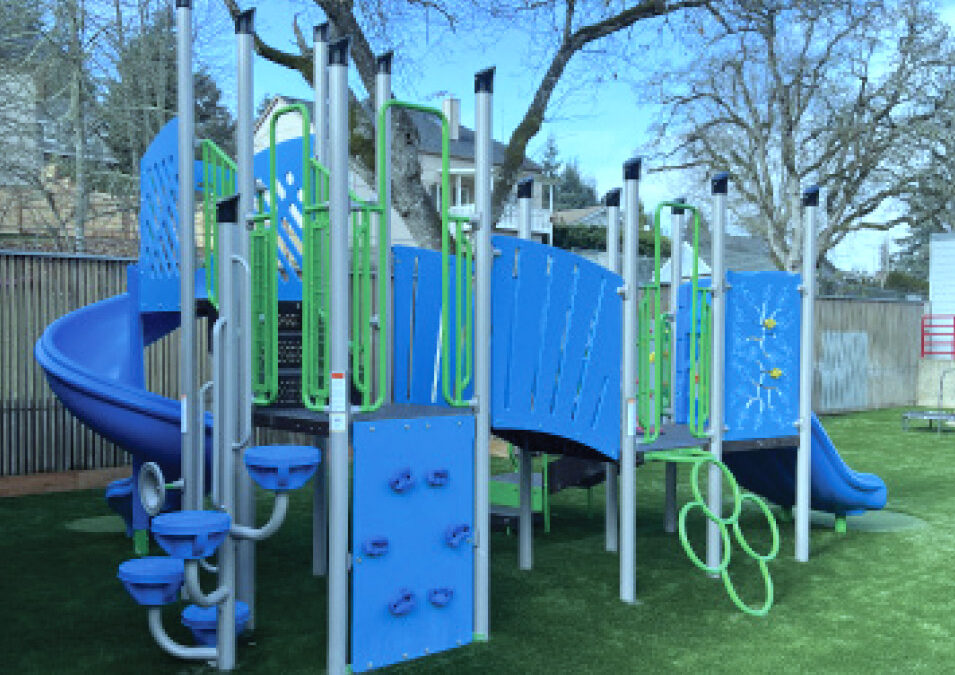 To great delight and wonder our children returned from Winter Break to find a new playground in Eugene. The project started out as a replacement of the tired and faded play structure which was installed in the early 1990s. It was well loved to the very end. Even the wasps tried to build nests in the railroad tie supports. Then bees began to frequent the clover that grew in the grassy part of the playground. We clearly needed more than a replacement. We needed a complete renovation and thanks to many generous donors, our dream came true.
To great delight and wonder our children returned from Winter Break to find a new playground in Eugene. The project started out as a replacement of the tired and faded play structure which was installed in the early 1990s. It was well loved to the very end. Even the wasps tried to build nests in the railroad tie supports. Then bees began to frequent the clover that grew in the grassy part of the playground. We clearly needed more than a replacement. We needed a complete renovation and thanks to many generous donors, our dream came true.
The new playground features a steel play structure with slides, several activity panels and climbers. A traversing wall was added which helps develop balance, coordination, problem-solving skills and strength. A new climb and discover cave offers more climbing opportunities as well as hidden insects, foliage and footprints to find. All of this was placed on a new turf surface. Big open spaces allow teachers to create obstacles courses, have dance parties, picnics, or just free play. Adjacent to the new playstructure, our robust and varied garden serves as a natural extension of the playground and alternative space for children to enjoy all of Relief Nursery’s outdoor areas.
Outdoor play is a centerpiece of our therapeutic early childhood program. It is good for a child’s physical and mental health and development. Most Relief Nursery children live in small homes where windows are kept closed and shuttered, and in areas where playgrounds or parks are not always accessible or safe. Their time at Relief Nursery might be their only opportunity for light and fresh air during the day.
Every day, we see firsthand the positive impact being in a natural environment has on the children. They are happier, more comfortable, and much better able to listen, process and learn. Playing in nature builds a child’s confidence and promotes curiosity, creativity and imagination. Unstructured play allows them to think more freely, make up their own activity and approach the world in an inventive way.
Being outdoors activates a child’s senses and provides stimulation that improves physical and mental health, develops social-emotional skills and better prepares children for school. Research shows that when children spent time in natural settings they had less anger and aggression. Perhaps most importantly, outdoor play improves mental health by increasing focus and reducing stress. Who doesn’t want more of that?

